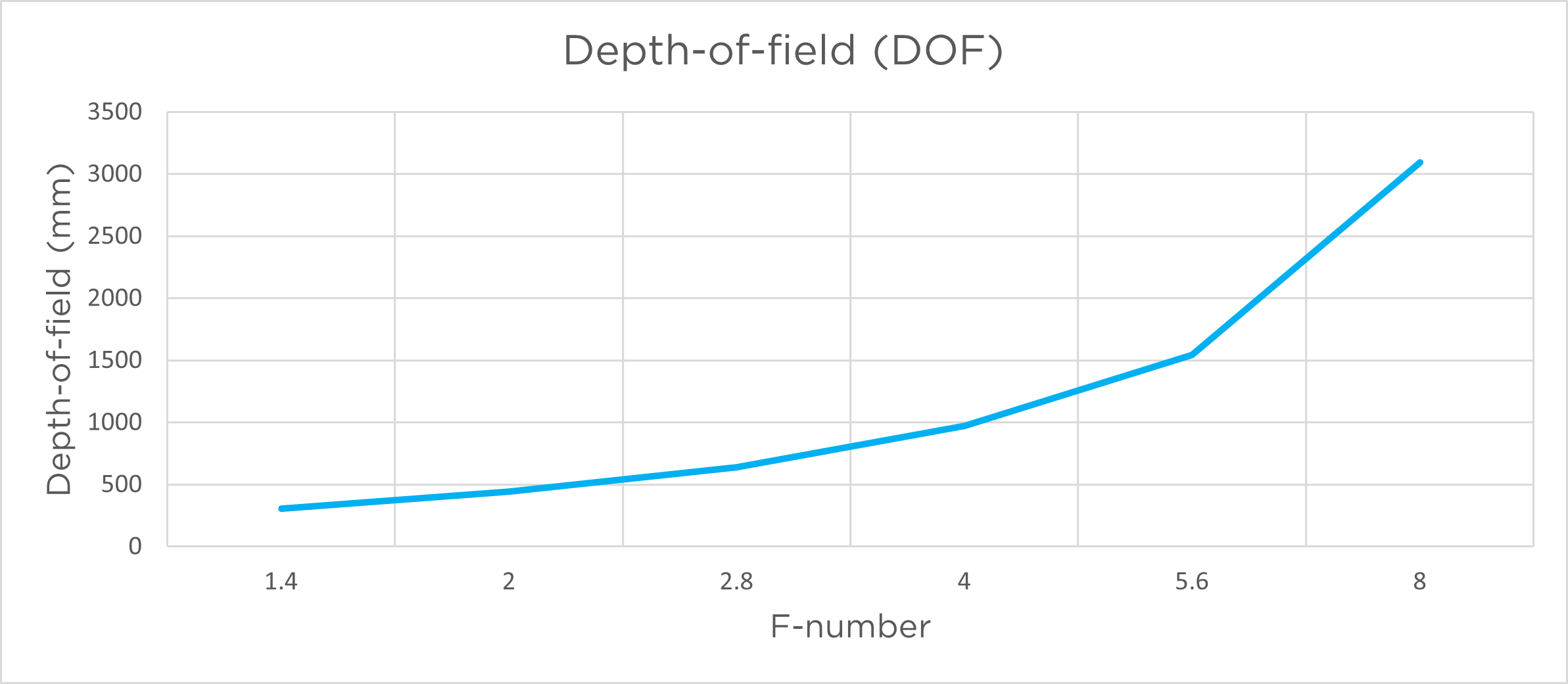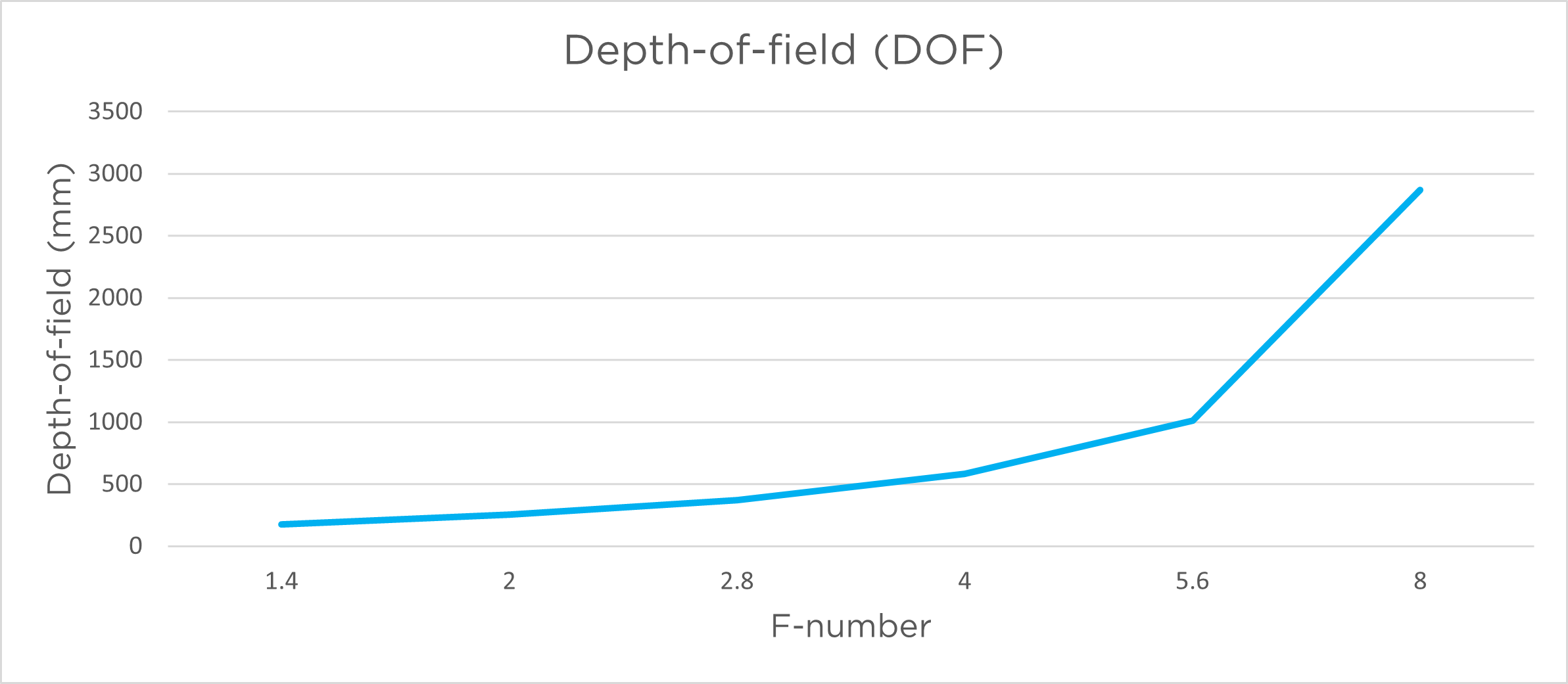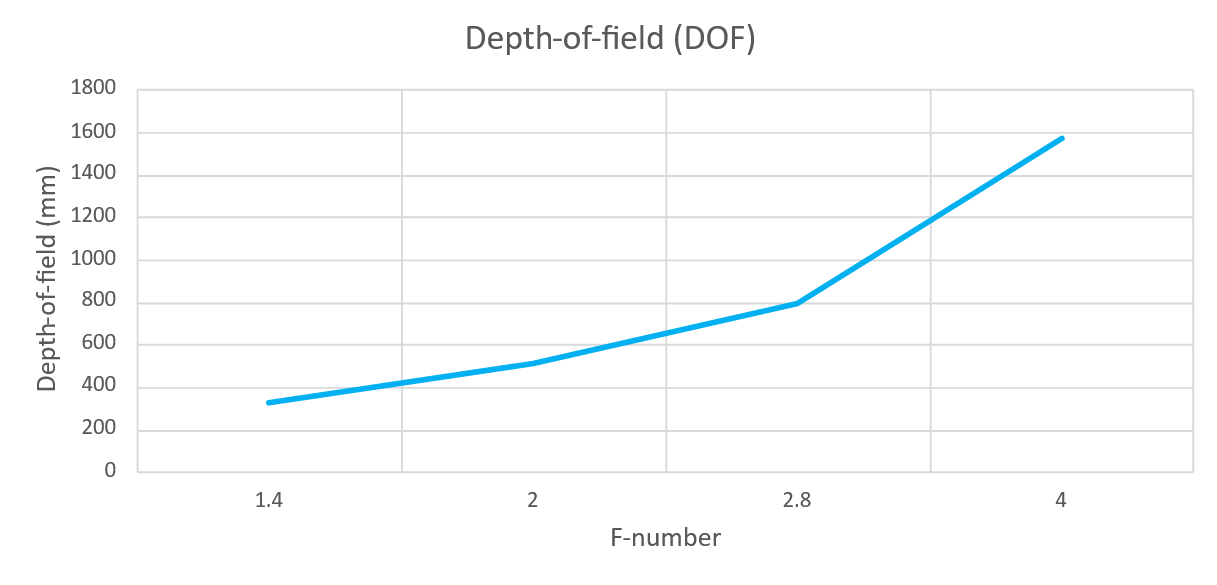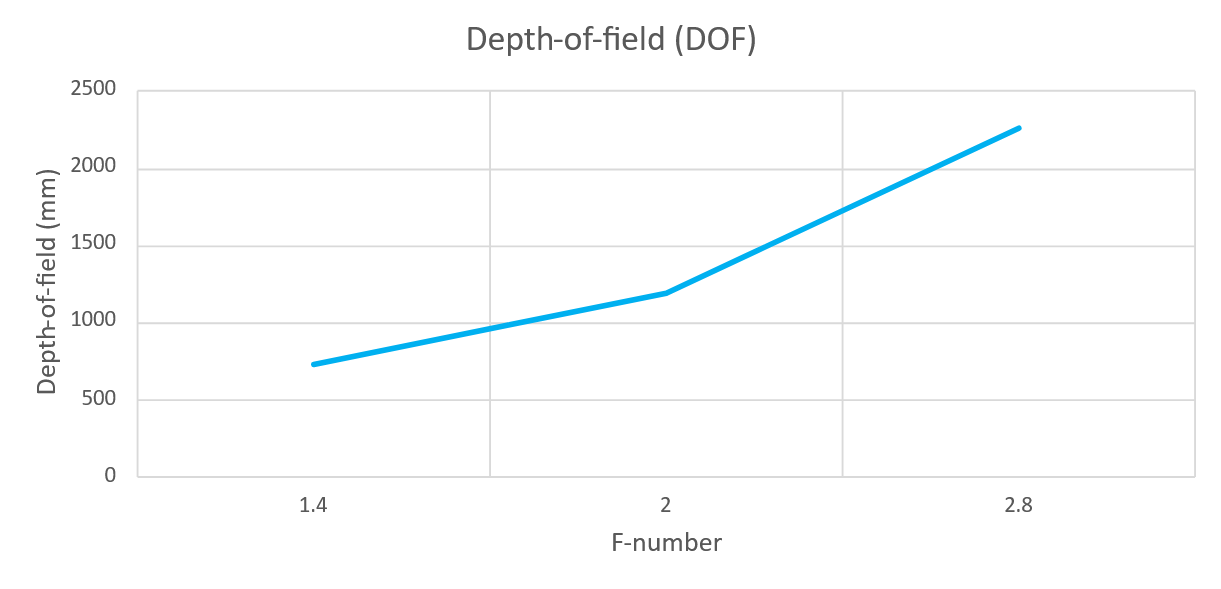Aperture(光圈)
介绍

相机光圈是镜头内的开口。 有些相机具有固定的光圈,而另一些则是可调的。孔径尺寸通常用 \(f\)-值表示,这种表达方式不太直观,因为开口的面积随着 \(f\)-值的减小而增加 。 \(f\)- 值 \(N\) 通过以下方式得出:
其中 \(f\) 是焦距 , \(D\) 是入射孔的直径。焦距是从镜头到相机内部焦点F的距离。大多数现代镜头都使用标准的 \(f\)-值,即基于2的平方根的幂相对应的几何数列: \(\\frac{f}{\\sqrt{2^n}}\) 。这种情况下,这个几何级数每减少一次,相机瞳孔的区域即减少一半。因此,递增或递减该序列即对应增加或减少曝光级数(stops)。
Zivid相机的光圈
The following table summarizes which Zivid camera families have adjustable (dynamic) aperture and which have a fixed aperture.
Camera Family |
Aperture Type |
|---|---|
Zivid 3 |
Fixed |
Zivid 2+ |
Dynamic |
Zivid 2 |
Dynamic |
The relevant models have an integrated electro-mechanical iris that can be rapidly adjusted. A completely open pupil corresponds to an \(f\)-number of \(\frac{f}{1.4}\) and a completely closed pupil to an \(\frac{f}{32}\). To use the stop method, it is recommended to use the following f-number values:
\(f\)-number |
\(\frac{f}{1.4}\) |
\(\frac{f}{2}\) |
\(\frac{f}{2.8}\) |
\(\frac{f}{4}\) |
\(\frac{f}{5.6}\) |
\(\frac{f}{8}\) |
\(\frac{f}{11}\) |
\(\frac{f}{16}\) |
\(\frac{f}{22}\) |
\(\frac{f}{32}\) |
Stops |
+4 |
+3 |
+2 |
+1 |
0 |
-1 |
-2 |
-3 |
-4 |
-5 |
光圈和景深
景深是在给定光圈下处于可接受的清晰焦点的图像范围。宽光圈(低f-值)时会得到较窄的景深(更短的对焦范围)。窄光圈(高f-值)时会得到更大的景深(更长的对焦范围)。景深的范围大约在焦点前方1/3和焦点后方2/3。
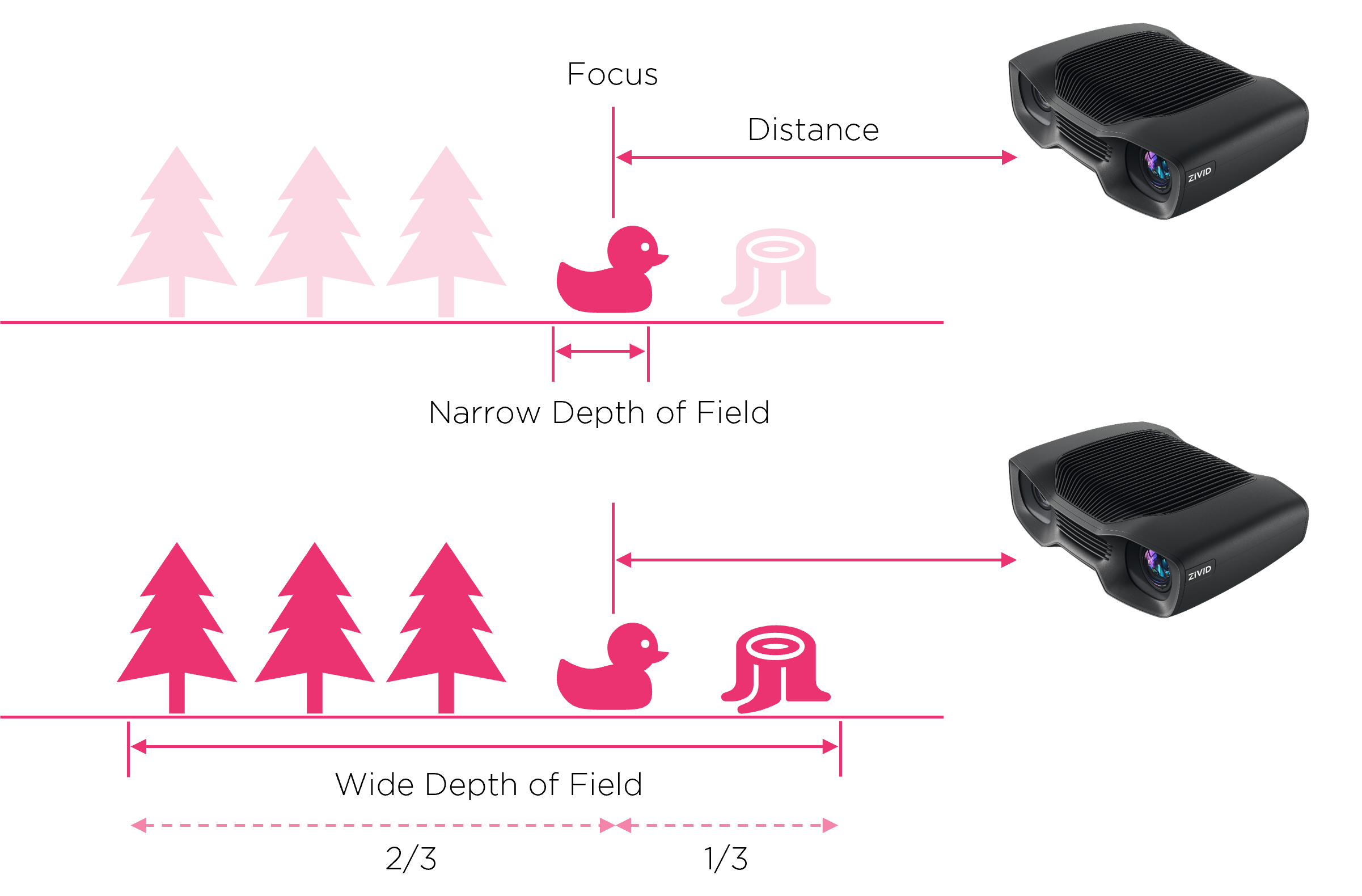
The graphs below show the depth of field as a function of aperture for the relevant models.
Zivid 3 XL250 cameras have a fixed aperture with an f-number of 3 and a non-variable depth of field.
进一步阅读
详细了解 焦深。
版本历史
SDK |
变更 |
|---|---|
2.17 |
Added support for Zivid 3 XL250. |
2.0.0 |
Aperture API 已从 Iris 更改为 Aperture。有关更多信息,请参阅 移植指南 。 |
